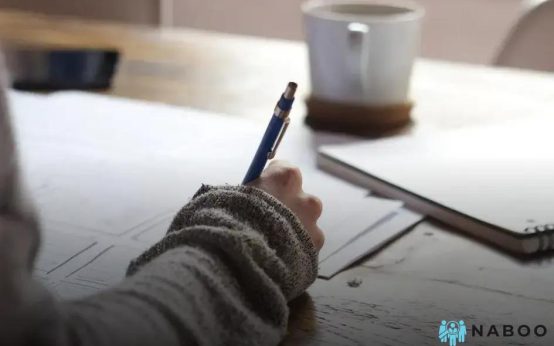Navigating the post-interview phase can be nerve-wracking. Knowing how to follow up after an interview is crucial to demonstrating your interest. It can significantly boost your chances of success. In this guide, we’ll explore essential strategies, from timing your messages right to crafting the perfect follow-up note.
Why Following Up Matters
Following up after an interview is a crucial step in the job application process. It’s not just a mere formality; it can significantly influence the outcome. When you reach out after an interview, you remind the employer of your sincere interest in the position. This simple act can set you apart from other candidates, demonstrating that you are proactive and genuinely eager to join their team.
Moreover, following up gives you a chance to reiterate your strengths and how they align with the company’s needs. Mention specific points from your interview that show you paid attention and have a clear understanding of what the role entails. This not only reinforces your fit for the job but also highlights your effective communication skills.
The Importance of Timing
It’s essential to follow up promptly, preferably within 24-48 hours. This window ensures that you remain fresh in the interviewer’s mind while still showing respect for their time. This respectful timing portrays you as someone considerate and eager yet patient.
Additionally, in today’s competitive job market, your follow-up can also serve as a networking opportunity. Building a rapport with the hiring manager, even if you do not secure the position, can be beneficial for future opportunities within the same organization or industry.
Take note that the follow-up process is as much about leaving a lasting positive impression as it is about expressing gratitude. A well-timed, thoughtful follow-up can indeed be the key to unlocking job offer doors that might otherwise remain closed.
Timing Your Follow-Up Right
Timing your follow-up after an interview is crucial in getting a response and leaving a positive impression. It’s important to craft your timing strategically, as it can demonstrate your enthusiasm and interest in the position. Generally, sending a follow-up email within 24 to 48 hours after the interview is recommended. This ensures that you’re still fresh in the interviewer’s mind while allowing them enough time to conclude other interviews.
Consider sending the follow-up email on a weekday, typically mid-morning, when the recipient is likely to have started their day but not yet overwhelmed with tasks. Avoid weekends or late evenings, as this might cause your email to be lost in the pile of unread messages.
Be punctual but not overbearing with your timing. If the employer has specified a timeframe for getting back to you, respect it and align your follow-up accordingly. Showing patience can highlight your professionalism. Meanwhile, keep an eye on possible delays in response and adjust as necessary, but avoid excessive emails that could feel like spam.
Lastly, take into account any specific instructions given during the interview regarding follow-up. Adhering to their preferences showcases your ability to follow instructions and demonstrates your strong communication skills.
Crafting the Perfect Message
When it comes to crafting the perfect message in a follow-up after an interview, it’s crucial to strike the right balance between gratitude and professionalism. Start by expressing appreciation for the opportunity and the time they took to interview you. Personalize the message by mentioning specific details from the conversation that stood out to you during the interview.
To ensure your message is memorable, keep it concise and to the point. Reiterate your enthusiasm for the position and the company, showcasing your continued interest. This can further reinforce your suitability for the role.
Use a professional tone, but let your genuine personality shine through. Avoid overly complex vocabulary; simplicity often resonates better. Consider including any additional information that either clarifies points discussed or adds value, such as highlighting relevant skills or achievements.
Proofreading is vital. Errors can detract from the professionalism of your message, so ensure it’s free of any mistakes. A polished follow-up message can leave a lasting positive impression.
What to Avoid in a Follow-Up
When following up after an interview, there are certain pitfalls you must steer clear of to maintain professionalism and increase your chances of success. Here are key things to avoid:
- Over-communicating: Sending multiple messages in a short span can come off as desperate or impatient. Limit your follow-ups to a courteous thank-you note and, if necessary, one subsequent email after a reasonable period.
- Being too casual: While rapport with the interviewer might exist, maintain a professional tone in your follow-up messages. Avoid using informal language or slang, which might undermine your seriousness.
- Making demands: Avoid pressuring the interviewer for a decision or stressing specific outcomes. Patience is key — let the process unfold naturally.
- Ignoring instructions If the interviewer provides a timeline for feedback or requests no follow-up, adhere to these instructions. Overstepping can leave a negative impression.
- Not proofreading: Ensure your messages are free from errors. Misspellings and grammatical mistakes can detract from your professionalism.
By steering clear of these errors, you enhance your communication strategy and improve your chances of leaving a positive impression.
Next Steps After Following Up
Once you’ve sent your follow-up message, it’s crucial to keep moving forward. It’s essential to maintain patience and stay proactive. While waiting for a reply can be nerve-wracking, it’s important to continue exploring other opportunities.
Reflect and Learn
Take a moment to consider the entire interview process. What went well? What could have been better? This reflection can help you in future interviews and follow-ups.
Network
Reach out to other professionals within your interest area. Networking can lead to unforeseen opportunities. Engage in meaningful conversations, join professional groups, and stay connected.
Prepare for Possibility of Rejection
Accept that you may not always get the response you desire. Rejection is not a reflection of your capabilities and can often be an opportunity for growth. Be ready to inquire for feedback, which can provide valuable insights.
Stay Updated
Remain informed about new developments in your industry or the company you interviewed with. This can help you remain top-of-mind should another opportunity arise.
Continue Your Job Search
While you’re waiting, continue applying to other positions. The process can be lengthy, and having multiple applications can improve your chances of success. Remember that patience and persistence are key in the job hunt.




